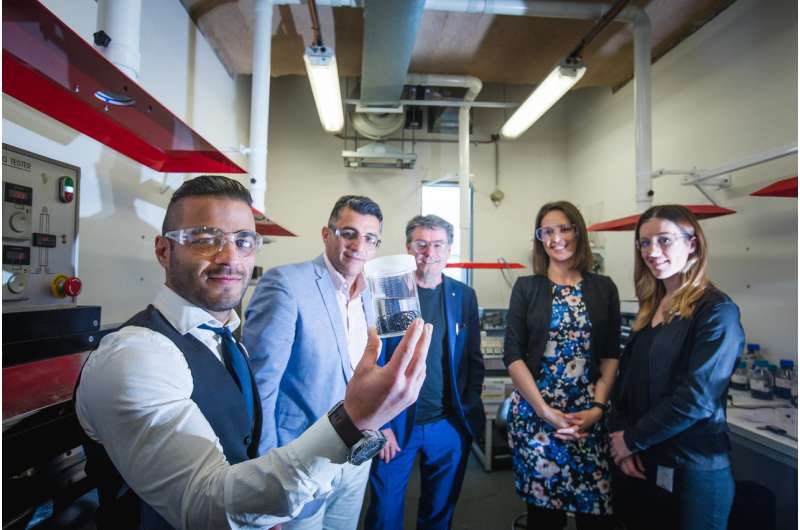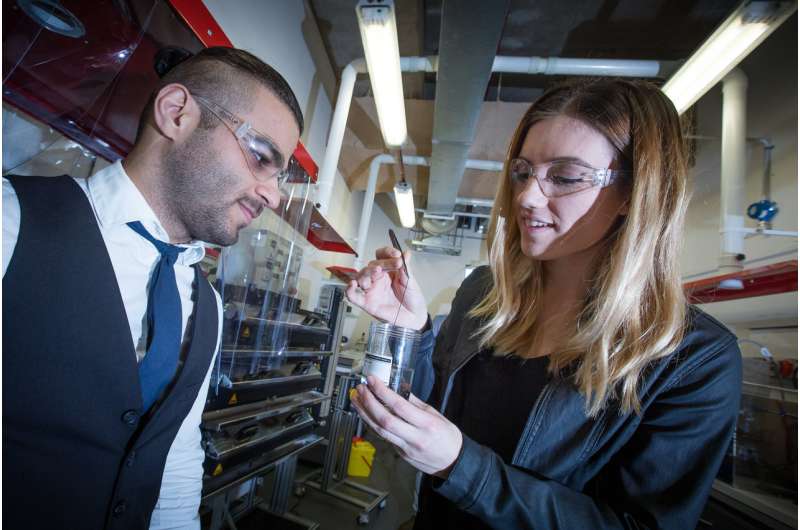'Uber' drug delivery for cancer patients

Cancer remains one of the major causes of death in Australia and around the world, despite improved treatments and rates of survival.
Traditional chemotherapy treatments have proven to have limitations in how effectively they deliver drugs to the tumour site, causing toxicity to healthy tissues, and failing to prevent the disease reoccurring.
However, advances in implantable drug delivery systems (DDS) means targeted treatments to the tumour site are showing promise as a more effective alternative to chemotherapy.
"It's a bit like hiring an uber driver, the biopolymer is effectively behind the wheel delivering a treatment. Local drug delivery is more effective and can diminish the negative side effects of chemotherapy and improve a patient's quality of life," said Ph.D. candidate Sepehr Talebian.
Implantable DDSs contain one or more drugs and are placed around or inside the tumour to directly target the cancerous cells. Other DDSs treat sites where tumours have been removed to prevent the cancer from reoccurring.
Over the past decade a wide variety of biomaterials (materials which interact with living cell systems) have been used to test which is most effective for targeted drug delivery.

In the recently published review, Biopolymers for Antitumor Implantable Drug Delivery Systems: Recent Advances and Future Outlook in Advanced Materials, researchers from the Illawarra Health and Medical Research Institute (IHMRI), the ARC Centre for Excellence for Electromaterials Science(ACES) and the University of Wollongong (UOW) looked at the pros and cons of a variety of DDS biomaterials trialled.
The review paper's lead authors, Dr. Javad Foroughi, Senior Research Fellow at ACES and at UOW's Intelligent Polymer Research Institute and an honorary Emerging Research Fellow at IHMRI, and Distinguished Professor Gordon Wallace (Director of ACES) have been working for a number of years on developing innovative controlled drug delivery strategies.
"Having precise control over where and when the drug is delivered means you can significantly reduce the drug dosage that is required – and thereby reduce the side effects – and also maintain the delivery of the drug over a longer duration of time," Dr. Foroughi added.
Working with colleague Dr. Kara Vine-Perrow, along with international collaborator Professor Dolatshahi-Pirouz (Technical University of Denmark), the team are creating the next generation of biopolymers for localising drug delivery systems.
"Biopolymers provide an ideal platform for implantable DDSs because as they can be rendered biodegradable, therefore they do not need to be surgically extracted after use as they can be cleared naturally by the body," said Dr. Foroughi.
The review paper described most recent developments and applications of biopolymer-based implantable DDSs for cancer treatments, focusing on the studies that were further down the path in making the transition from concept to clinical application.
It also described how DDSs have shown immense promise in treating malignant tumours by delivering a variety of anticancer therapeutic agents. However, biopolymeric implantable DDSs come up short in treating metastasis and a dual delivery therapy that combines DDSs with conventional chemotherapy is vital to approach cancer from all sides.
More information: Sepehr Talebian et al. Biopolymers for Antitumor Implantable Drug Delivery Systems: Recent Advances and Future Outlook, Advanced Materials (2018). DOI: 10.1002/adma.201706665
Journal information: Advanced Materials
Provided by University of Wollongong



















